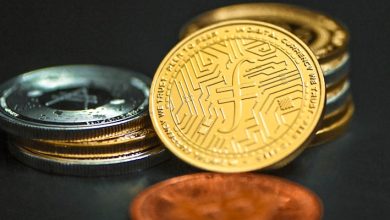What Is a Blockchain Node and Why Is It Important?

- Understanding the Basics of a Blockchain Node
- The Role of a Blockchain Node in a Decentralized Network
- Why Every Blockchain Needs Nodes to Function
- The Significance of Nodes in Securing the Blockchain
- How Nodes Validate Transactions on the Blockchain
- Exploring the Types of Blockchain Nodes and Their Functions
Understanding the Basics of a Blockchain Node
Understanding the basics of a blockchain node is essential for grasping the functioning of blockchain technology. A blockchain node is a crucial component of a blockchain network, responsible for verifying and validating transactions. Each node stores a copy of the entire blockchain, ensuring transparency and security. By participating in the consensus mechanism, nodes contribute to the decentralization of the network.
Blockchain nodes can be categorized into different types based on their roles and responsibilities. Full nodes, for example, maintain a complete copy of the blockchain and participate in the validation process. Light nodes, on the other hand, rely on full nodes for transaction verification. Mining nodes are responsible for adding new blocks to the blockchain through the process of mining.
Running a blockchain node requires a certain level of technical expertise and resources. Nodes need to stay connected to the network to receive and validate transactions continuously. Additionally, nodes must adhere to the consensus protocol established by the blockchain network to ensure the integrity of the system. By running a node, individuals can contribute to the security and decentralization of the blockchain network.
The Role of a Blockchain Node in a Decentralized Network
The role of a blockchain node in a decentralized network is crucial for the overall functionality and security of the system. Nodes act as the backbone of the blockchain network, helping to validate transactions, secure the network, and maintain the integrity of the ledger. Without nodes, a blockchain network would not be able to function effectively.
When a transaction is initiated on the blockchain, it is broadcasted to all nodes in the network. Each node then verifies the transaction using complex algorithms to ensure its validity. Once a consensus is reached among the nodes that the transaction is legitimate, it is added to a block and appended to the blockchain. This decentralized process helps to prevent fraud and tampering within the network.
Furthermore, blockchain nodes play a crucial role in maintaining the security of the network. By participating in the consensus mechanism, nodes help to prevent malicious actors from gaining control of the network and manipulating transactions. This decentralized approach to security makes blockchain networks more resilient to attacks and ensures the trustworthiness of the system.
In addition to validation and security, blockchain nodes also help to maintain the integrity of the ledger by storing a complete copy of the blockchain. This distributed ledger ensures that all transactions are transparent and immutable, making it difficult for bad actors to alter the historical record. By storing a copy of the blockchain, nodes help to decentralize the network and prevent a single point of failure.
Overall, the role of a blockchain node in a decentralized network is essential for ensuring the reliability, security, and integrity of the system. Without nodes, blockchain networks would not be able to operate in a decentralized and trustless manner, making them vulnerable to fraud and manipulation. As such, nodes play a critical role in the success of blockchain technology and are an integral part of its operation.
Why Every Blockchain Needs Nodes to Function
Nodes are an essential component of any blockchain network as they play a crucial role in maintaining the network’s integrity and security. Without nodes, a blockchain would not be able to function effectively. Let’s delve into why every blockchain needs nodes to operate smoothly.
First and foremost, nodes are responsible for validating and relaying transactions on the blockchain. When a transaction is initiated, it is broadcasted to a network of nodes, which then verify the transaction using consensus mechanisms. This verification process ensures that only legitimate transactions are added to the blockchain, preventing double-spending and other fraudulent activities.
Additionally, nodes store a copy of the entire blockchain ledger, allowing them to independently verify the authenticity of transactions. This distributed nature of blockchain ensures that there is no central point of failure, making it resistant to censorship and tampering.
Furthermore, nodes help in maintaining the decentralization of the blockchain network. By participating in the consensus process, nodes contribute to the decision-making process of the network, ensuring that no single entity has control over the entire network. This decentralization is crucial for upholding the trust and transparency of the blockchain.
In conclusion, nodes are the backbone of any blockchain network, facilitating secure transactions, maintaining the integrity of the ledger, and upholding decentralization. Without nodes, a blockchain would be vulnerable to attacks and manipulation. Therefore, it is imperative for every blockchain to have a robust network of nodes to ensure its smooth operation and longevity.
The Significance of Nodes in Securing the Blockchain
The significance of nodes in securing the blockchain cannot be overstated. Nodes play a crucial role in maintaining the integrity and security of the blockchain network. They are essentially the backbone of the decentralized system, responsible for validating and relaying transactions, as well as storing a copy of the entire blockchain ledger.
Nodes work together to reach a consensus on the validity of transactions, ensuring that no single entity has control over the network. This distributed nature of nodes makes it extremely difficult for malicious actors to manipulate the blockchain, as they would need to compromise a majority of the nodes to do so.
Furthermore, nodes help to ensure the transparency and immutability of the blockchain by continuously verifying the transactions and adding them to the ledger in a sequential and irreversible manner. This process helps to prevent fraud and unauthorized changes to the data stored on the blockchain.
In summary, nodes are essential in securing the blockchain network by maintaining decentralization, consensus, transparency, and immutability. Without nodes, the blockchain would be vulnerable to attacks and manipulation, undermining the trust and reliability of the entire system.
How Nodes Validate Transactions on the Blockchain
Nodes play a crucial role in validating transactions on the blockchain. When a transaction is initiated, it is broadcasted to all nodes on the network. Each node then verifies the transaction using a set of predefined rules to ensure its validity. These rules help prevent double-spending and other fraudulent activities.
Once a node verifies a transaction, it adds it to a block along with other validated transactions. This block is then added to the existing blockchain in a sequential order. Nodes then reach a consensus on the validity of the block, either through proof of work or proof of stake mechanisms. This process helps maintain the integrity and security of the blockchain network.
Nodes continuously communicate with each other to update their copy of the blockchain and ensure that all transactions are accurately recorded. This decentralized system of validation and verification makes it nearly impossible for malicious actors to manipulate the blockchain. It also ensures transparency and trust among network participants.
Exploring the Types of Blockchain Nodes and Their Functions
Blockchain nodes play a crucial role in the functioning of a blockchain network. There are several types of blockchain nodes, each with its own specific functions and responsibilities.
- Full Nodes: Full nodes are the backbone of the blockchain network. They store a complete copy of the blockchain and validate transactions independently. Full nodes contribute to the security and decentralization of the network.
- Mining Nodes: Mining nodes are responsible for creating new blocks on the blockchain through the process of mining. They compete to solve complex mathematical puzzles in order to add new transactions to the blockchain.
- Light Nodes: Light nodes, also known as SPV (Simplified Payment Verification) nodes, do not store the entire blockchain. Instead, they rely on full nodes to provide them with relevant information when needed. Light nodes are commonly used in mobile wallets.
- Pruning Nodes: Pruning nodes store only a portion of the blockchain by discarding old transaction data. This helps reduce the storage requirements of running a full node while still contributing to the network’s security.
- Witness Nodes: Witness nodes are used in blockchain networks that implement the Segregated Witness (SegWit) protocol. They store witness data separately from transaction data to improve scalability and security.
Each type of blockchain node serves a unique purpose in the network, working together to ensure the integrity and efficiency of the blockchain. By understanding the different types of nodes and their functions, users can make informed decisions about their participation in the blockchain ecosystem.



